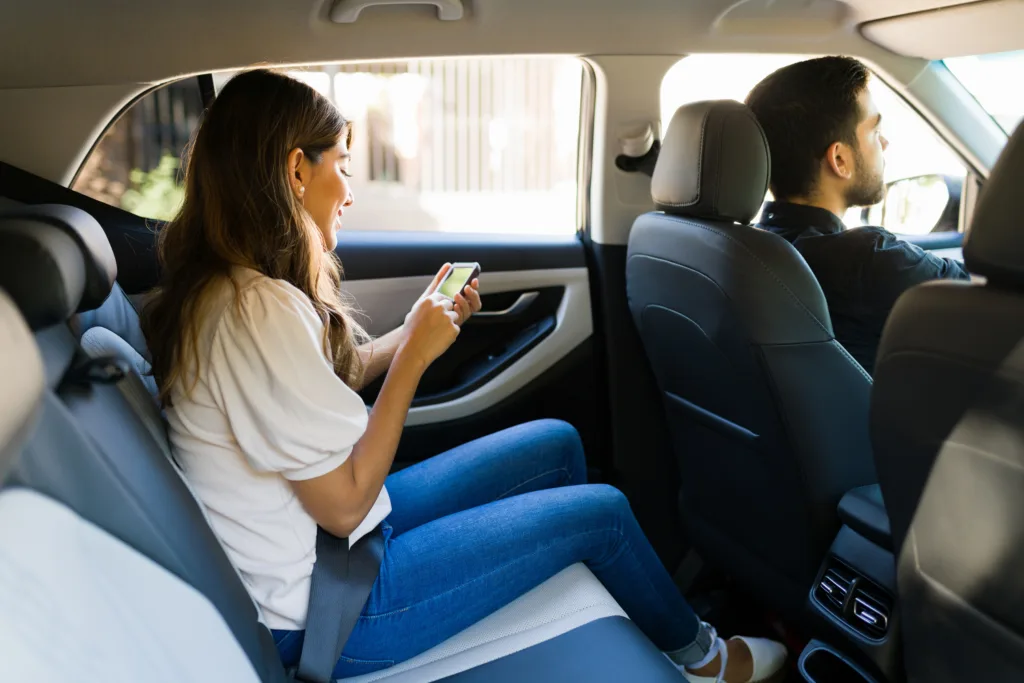
As rideshare apps become increasingly popular, drivers on these apps may begin to wonder whether their current auto insurance covers their vehicle while on the clock. Nothing would be more detrimental to rideshare drivers’ livelihood than getting into an accident while working, only to discover their current auto insurance policy doesn’t cover it.
While your current auto insurance policy is sufficient to protect your vehicle during accidents on your personal time, it may not cover you while you’re on the job. Many rideshare apps provide limited coverage, but you may need special insurance to cover gaps in coverage.
In this blog, we’ll help you understand what insurance coverage you need to save you from unexpected expenses and headaches.
Why Your Personal Car Insurance Isn’t Enough
Most personal auto insurance policies are designed to cover private, personal use of your vehicle. This means you’re safe from liability while running errands, heading to a friend’s house, or driving to pick up dinner. However, your car is technically being used for commercial purposes when you’re driving passengers for a fee.
This distinction is important because personal insurance policies typically exclude coverage for commercial activities. If rideshare drivers get into an accident while driving for a rideshare company, their insurer may deny their claim if they determine they were working at the time.
What About Rideshare Company Insurance?
Many rideshare companies, like Uber and Lyft, offer some insurance coverage to rideshare drivers, but it doesn’t cover all scenarios. These policies are typically split into different phases:
- The App is Off: Rideshare drivers’ vehicles are covered by their personal insurance policy, as they are not clocked in and working.
- The App Is On, and You’re Waiting for a Ride Request: Your rideshare company will offer limited liability coverage while waiting for a ride request. For example, Lyft provides $50,000 per person for injuries, $100,000 per accident, and $25,000 for property damage. However, this coverage often excludes damage to your vehicle.
- You’re En Route to Pick Up a Passenger or Have a Passenger in the Car: Uber and Lyft provide rideshare drivers with higher liability coverage, usually up to $1 million. They may also offer contingent comprehensive and collision coverage, but only if you have those coverages on your policy.
The Gaps in Coverage

While the coverage provided by your rideshare app is substantial, some gaps may leave you and your vehicle vulnerable:
- Deductibles: Your rideshare company insurance policy often comes with a higher deductible than expected. For example, Uber’s deductible is $2,500. If your car is damaged in an accident, you must cover this out-of-pocket deductible before reimbursing your repairs.
- Periods of Limited Coverage: The most significant gap occurs during the “waiting period” when the app is on, but rideshare drivers haven’t accepted a ride. Your policy won’t cover you, and the rideshare company’s coverage is minimal.
Rideshare Endorsements: Bridging the Gap
If rideshare drivers want to protect themselves fully, they may want to speak to their insurance company about rideshare endorsements or rideshare insurance policies. These policy add-ons cover you while you’re waiting for ride requests. With a rideshare endorsement, insurers provide coverage during all phases of your drive, reducing or eliminating coverage gaps. There are many benefits to investing in these endorsements, including:
- Peace of mind knowing that you’re covered in all situations.
- Lower deductibles than your rideshare app’s insurance offers.
- Ensure that damage to your car is covered regardless of when an accident occurs.
How to Get a Rideshare Endorsement
If you are interested in getting a rideshare endorsement, contact your insurance provider as soon as possible to see if they offer it. Not all companies offer these endorsements, but many major insurers will provide coverage. Be transparent about your rideshare activities to avoid denied claims in the future.
While these endorsements may add a small cost to monthly premiums, the protection they offer rideshare drivers can save them thousands of dollars in the event of an accident. Additionally, some states and companies require rideshare drivers to have additional insurance to operate legally. Investing in these endorsements is best if you want to ensure your safety, the safety of your vehicle, and the safety of your passengers while on the road.
Helping Rideshare Drivers Protect Their Vehicles
Driving for a rideshare service can be a great way to earn extra income, but having the right insurance coverage is essential. Relying solely on personal insurance or the limited protection provided by rideshare companies can leave you financially exposed. If you’re looking for an insurance team in the Idaho Falls area to help you find adequate auto insurance coverage, turn to Tower Insurance Brokers for support. With our team on your side, you can trust that you’ll always be safe on the road.
To learn more about our auto insurance policies and coverage, contact our team today.


Leave a Reply